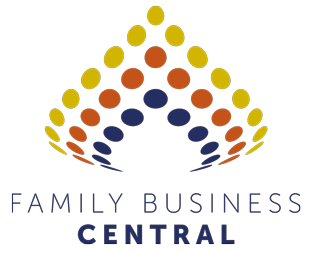
Five simple rules for the transition of a Family Business
In previous blogs, we’ve discussed how critically important succession is. Not just to give certainty to the family, employees, customers, banks and other stakeholders, but also to reduce intra-family conflict, which has the potential to damage relationships within the family and the business. Are you looking for ways to ensure smooth sailing when it comes time to family business generational transition? With a few tools up your sleeve, it doesn’t have to be as stressful as you may think.
In this blog, we take a look at the five simple rules for transition and succession in a family business.
The five rules are:
- Get the Senior Generation financially comfortable and comfortable with who is going to take over the business
- Develop a Next Generation Development Plan so the Next Generation is ready, willing and able to take over the business
- Develop skills within the family to have honest, transparent conversations – and practice doing this
- Build solid, long term family governance and business governance that work in sync with one another
- Develop the skills to look at the business from the rational/logical/mathematical perspective as well as the emotional/family/fairness perspective
Let’s take a deeper look at each of these family business transition tips.
1. Get the Senior Generation comfortable
The Senior Generation has worked extremely hard over the years to build and maintain the business. They have gone through GFCs, high interest rates and government idiocy. They have also seized opportunities, put their necks (i.e., their house, reputation and business) on the line in order to do amazing things.
Now it’s time for the Senior Generation to enjoy their time in the sun, they deserve it. They need to have financial security, but the real gift to them is the joy and pride of knowing their hard work is being carried on by the next generation and benefitting the whole family and future generations.
Yes, at times, they may act like control freaks, and yes, they often suffer “founders syndrome”, however, it’s worth remembering that if it weren’t for them, we wouldn’t be here.
Successful family business transition planning starts with the Senior Generation. What are their dreams and visions, what would they like to see happen and, what are their concerns and worries? What are they going to do if they no longer have a full-time role in the business, and what future role do they want in the business (if any) going forward?
These are critically important conversations to have. It may not be easy for the Senior Generation to address these issues, and some concerns may arise. Inevitably, as parents, they want only the best for their family. They often strive to be scrupulously fair to all their kids and don’t want to upset anyone. These conversations can’t be rushed and sometimes need to be discussed several times to make sure everyone is comfortable. Because of the delicate nature of this subject, we advise family business owners to engage skilled professionals to help with these conversations.
Recently, we spent nearly two days talking to the parents of a successful family business in Australia to ensure they were comfortable with the plans in place to take things forward both for them and the business.
2. Develop the Next Generation
For the Next Generation, there needs to be a clear development plan in place. For some, they might already be heavily involved in the business, if not running it. For others, they may need to get further qualifications, experience and mentoring. For everyone’s sake, having a clear and agreed to plan is extremely helpful. As mentioned above, not just for the family but for all the other key stakeholders involved in the business. This involves family members being able to sit down and discuss these issues both from a business and a family perspective.
3. Honest and transparent conversations
In order for the first two points to happen, the family needs to be able to have honest and transparent conversations. This is not easy for any family, let alone a family in business together. It requires the ability to discuss the business, its growth, success and viability. Simultaneously you are also talking about family relationships, skills, dreams, careers, and emotions, and of course, whether directly or not, we are also talking about mortality.
We’ve written about the importance of good family communication in a number of previous blogs, and the ability to have these conversations is a skill everyone in the family can learn. It is not always easy, and conversations such as these can be emotional, but they are also important. The challenge for most families is learning new patterns of communication, not jumping to conclusions and really listening to what each other is saying. The risk is always that the emotions get too much for people, so it is important to structure your meetings, take regular breaks and slow the conversations down.
4. Family and business governance
Because of the complexity of family businesses, family and business governance is critical. Both need to be developed in sync, so they support and complement each other. Basic business governance is shareholders with appropriate shareholders agreements in place, a board (whether this is an Advisory Board or a Board of Directors), and of course, a management structure. This is exactly what any business would have.
However, family businesses also need to add family governance. This includes a written and agreed to Family Charter and Family Council. For bigger families, they can consider a Family Forum. The Family Charter is a written document that is critical for successful long term family businesses. It lays out the rules the family has agreed to as well as holding the family history, vision, approach to business, how money is dealt with and, a succession plan. The succession plan should cover all three areas of succession, ownership, directorship and leadership. It’s a crucial document that guides the family for generations.
The Family Council is the other crucial element in this mix. The Family Council is to the family what the Board is to the business. The Family Council is made up of the core family members and has a number of roles. For example, it is often the communication channel from the family through to the business—usually via the Board. It is a place where the family comes together to discuss the key issues and challenges in the family. This could be what we are doing for Christmas, the education policy, dividends, and how to support a family member going through a divorce or illness. It is one of the key areas where the family can talk about the key issues, even the uncomfortable ones the family needs to address. The Family Council constantly balances fairness and transparency and is a key builder of the family culture and vision.
5. Look at all aspects of the family business
Family businesses are unique in that they are often brilliant businesses run by amazing business people making smart business decisions. Simultaneously, they are constantly dealing with the emotions and tensions in the family. The real skill is to be able to look at the business from both the ‘logical’ perspective and the ‘feeling’ perspective. Never underestimate how emotionally connected family members are to the business—it’s often a huge source of pride and sometimes identity for family members. For family-owned farms, this is even more so!
Successful family businesses juggle the balance between logic and hard-headed decision making with the importance of family relationships and emotions. It is not easy, but it is critical.
My final suggestion is that when you think through family business transition, think long term. Think 40 years ahead and ask yourself the question, “What do I want my great-granddaughter to get out of this business?”

